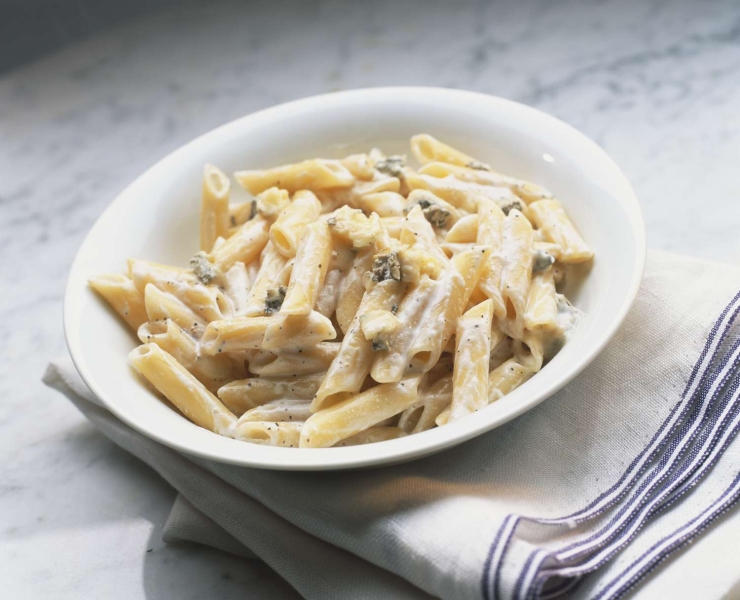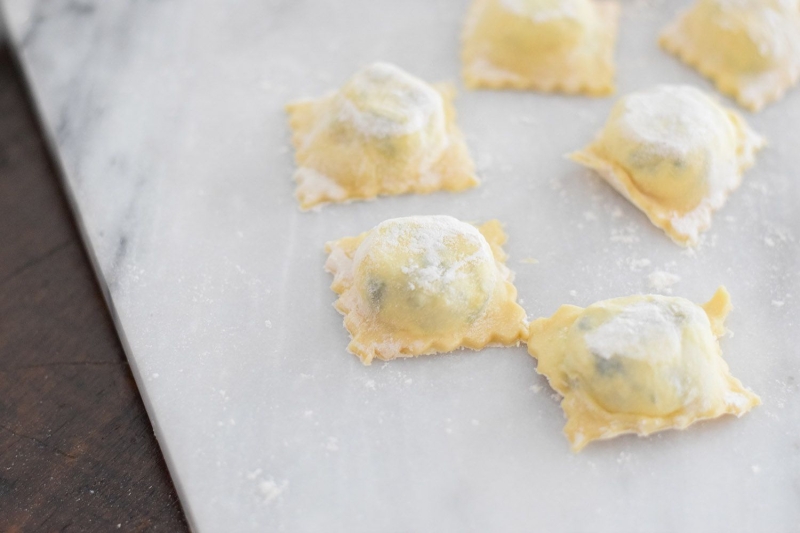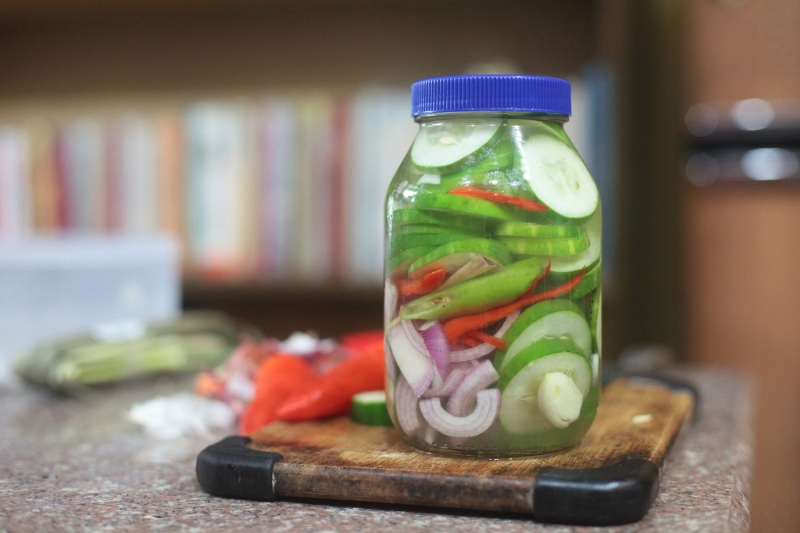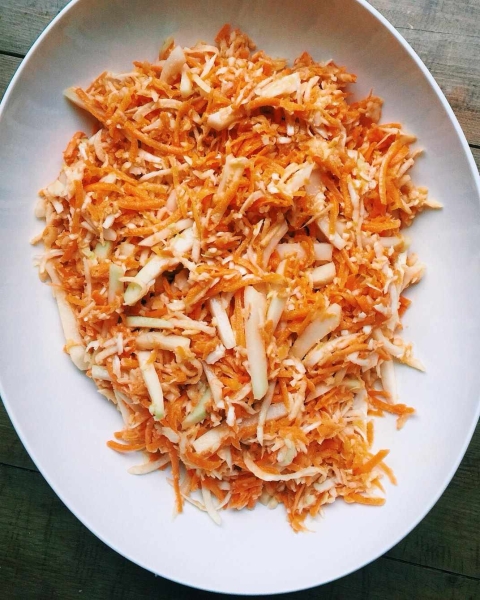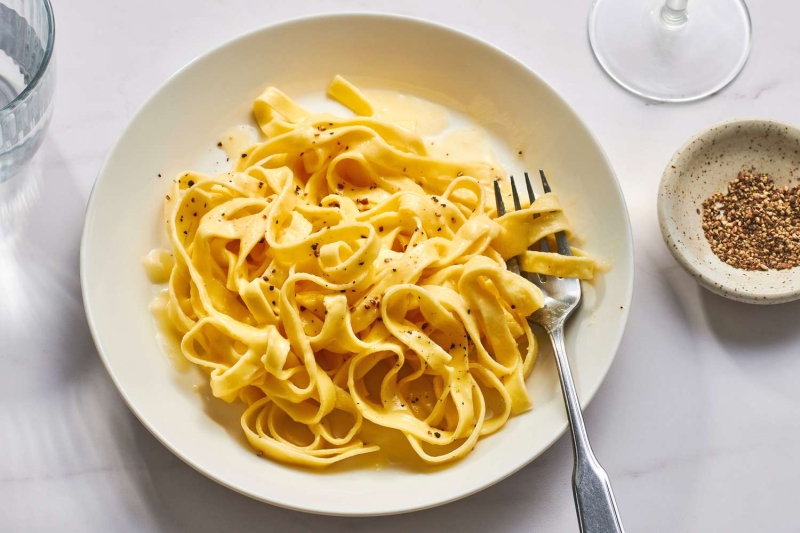
The classic pasta dish with just 5 ingredients, including salt and pepper

Prep: 10 mins
Cook: 15 mins
Total: 25 mins
Servings: 4 to 6 servings
The Origins of Fettuccine Alfredo
Classic fettuccine Alfredo was created in 1914 by Alfredo di Lelio at his restaurant Alfredo’s. Like other notable Roman pasta dishes cacio e pepe and spaghetti alla carbonara, fettuccine Alfredo is an emulsion of butter, pasta water, and Parmigiano Reggiano.
Fettuccine Alfredo's Journey From Italy to the US
Rumor has it that American movie stars Douglas Fairbanks and Marie Pickford ate fettuccine Alfredo while on their honeymoon in Rome in 1927. They loved it so much that they started cooking it for friends when they returned to Hollywood. The popularity of the dish in America took off from there. But since American-made butters and cheeses contain less milk fat than their European equivalents, American cooks started adding heavy cream to achieve the velvety flavor and texture of the Italian recipe.
Use High Quality Ingredients
Jarred Alfredo sauce is now ubiquitous in American supermarkets, but the original Roman recipe is simple and fast to create at home. With so few ingredients, it is best to use the highest quality products you can find. Look for European-style butter such as Président or Plugra, Parmigiano Reggiano cheese in a block, and good quality dried or fresh pasta.
Slowly whisking the butter and cheese into the pasta water emulsifies the sauce and creates a velvety texture. It needs no accompaniment besides freshly ground pepper, but you can serve it with a simple arugula salad and crusty bread to soak up the extra sauce.
“The pasta Alfredo was excellent and a quick dish to make on a weeknight. I used freshly grated pecorino Romano and fresh fettuccine pasta, and with the butter and pasta water it made a delicious, silky sauce.” —Diana Rattray
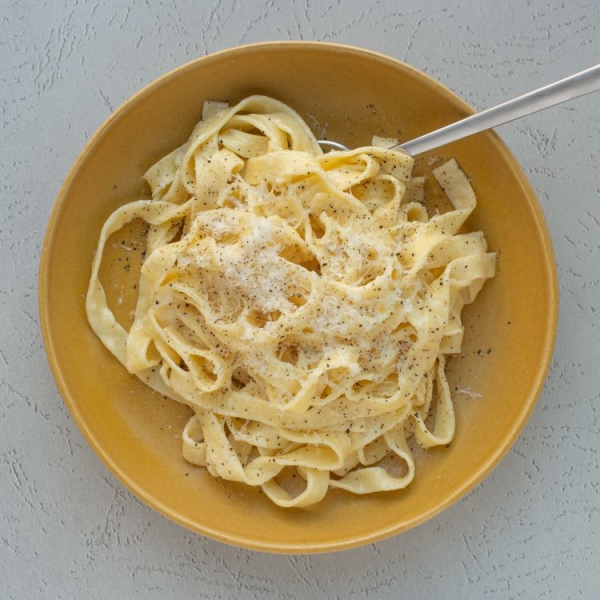
A Note From Our Recipe Tester Cook Mode (Keep screen awake)
Ingredients
-
Kosher salt
-
1 pound fresh fettuccine or other long pasta like pappardelle or linguine
-
4 ounces (1/2 cup) unsalted butter, cut into small pieces
-
1 cup freshly grated Parmigiano Reggiano cheese, or Pecorino Romano
-
Freshly ground black pepper, for serving
Steps to Make It
-
Gather the ingredients.
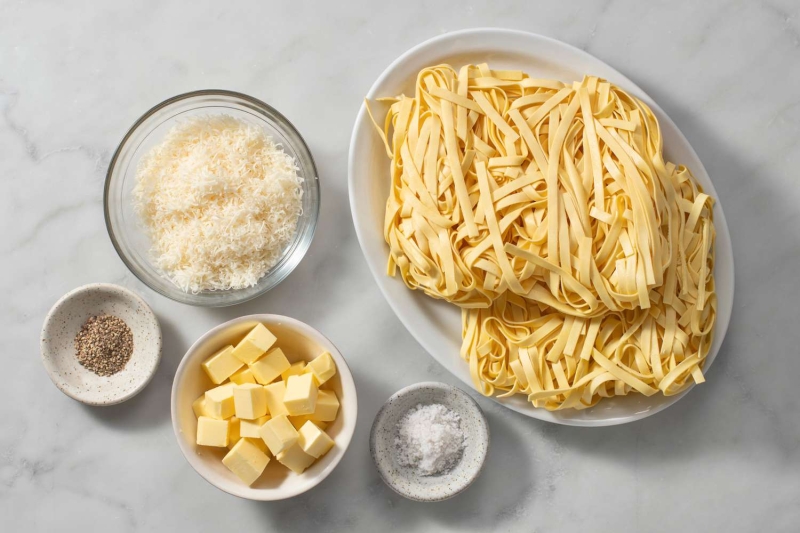
-
Bring a large pot of water to a boil. Salt the water liberally and taste it. It should taste like sea water. Add the pasta and cook according to package directions until al dente.
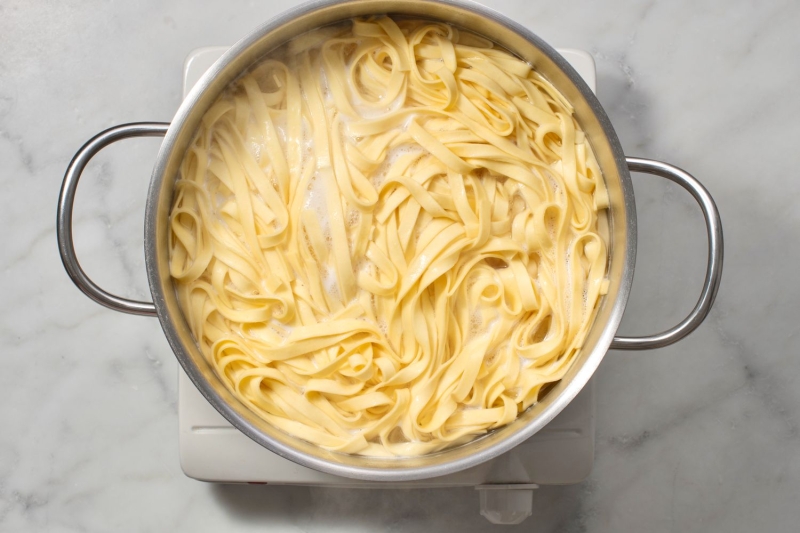
-
Reserve 1 cup pasta water before draining the pasta.
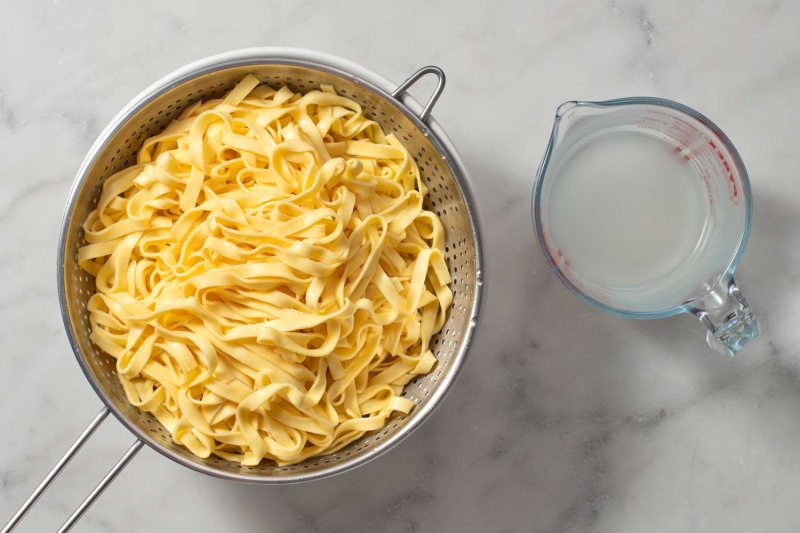
-
Return 3/4 cup of the reserved pasta water to the same pot over medium-low heat. Slowly add butter, a few pieces at a time, whisking until butter is melted before adding more.
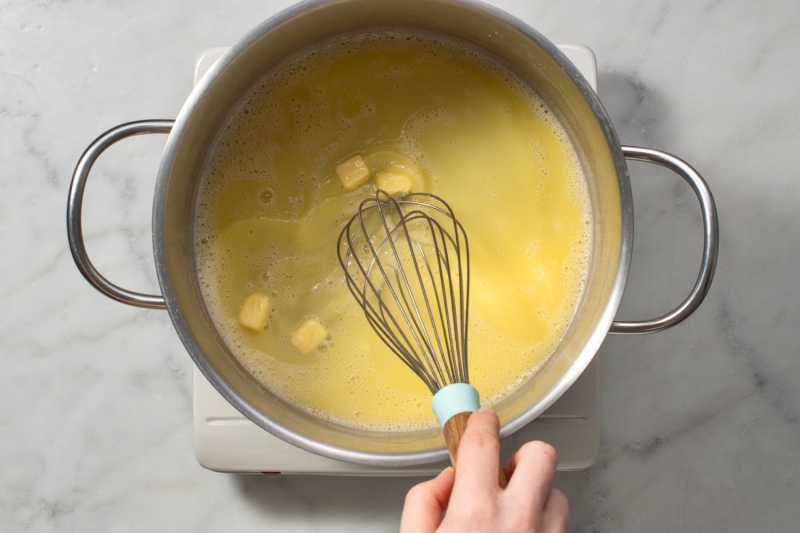
-
Add cheese a little at a time, whisking until melted. The sauce should start to achieve a smooth, thickened texture. Make sure there are no visible pieces of cheese before you add more.
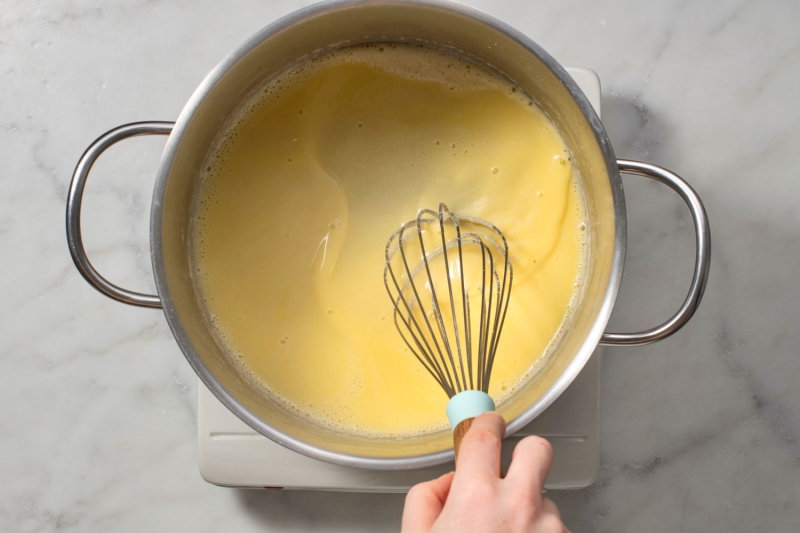
-
Add pasta to pot and toss with tongs until well coated and the sauce is velvety and smooth, about 1 minute. Use remaining 1/4 cup pasta water to thin if needed. Finish with freshly ground pepper. Serve immediately.
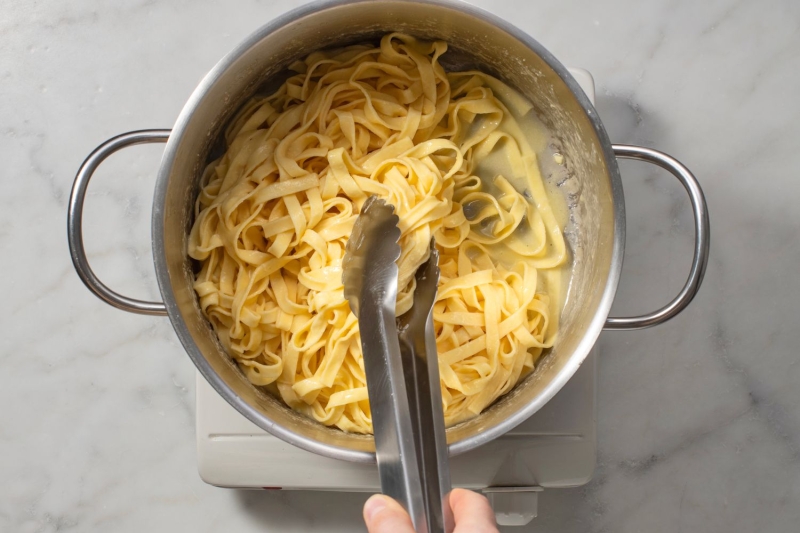
Recipe Tips
- With just three ingredients, use the very best high-quality products you can find. European-style butter has a higher fat content, resulting in less water, more flavor, and a creamier texture. Choose either a wedge of Parmesan cheese to grate at home or cheese that has been freshly grated at the store instead of the pre-grated kind that uses anti-clumping stabilizers which will prevent the needed emulsification of the sauce.
- This dish is best enjoyed immediately after preparation. Leftovers can be reheated in the microwave on 50 percent power for 1 minute; however, the sauce could break, meaning the oil will separate from the milk solids, losing the creamy element and the whole point of this simple dish. It will still be delicious, but it will not look as appealing.
Recipe Variation
To make this dish with dried pasta, use 12 ounces and cook according to package directions.
How to Store
Leftovers will keep for up to three days in the refrigerator, though it’s best eaten immediately.
| Nutrition Facts | |
|---|---|
| Servings: 4 to 6 | |
| Amount per serving | |
| Calories | 320 |
| % Daily Value* | |
| Total Fat 20g | 26% |
| Saturated Fat 12g | 61% |
| Cholesterol 55mg | 18% |
| Sodium 359mg | 16% |
| Total Carbohydrate 25g | 9% |
| Dietary Fiber 1g | 4% |
| Total Sugars 1g | |
| Protein 9g | |
| Vitamin C 0mg | 0% |
| Calcium 155mg | 12% |
| Iron 1mg | 6% |
| Potassium 105mg | 2% |
| *The % Daily Value (DV) tells you how much a nutrient in a food serving contributes to a daily diet. 2,000 calories a day is used for general nutrition advice. | |
